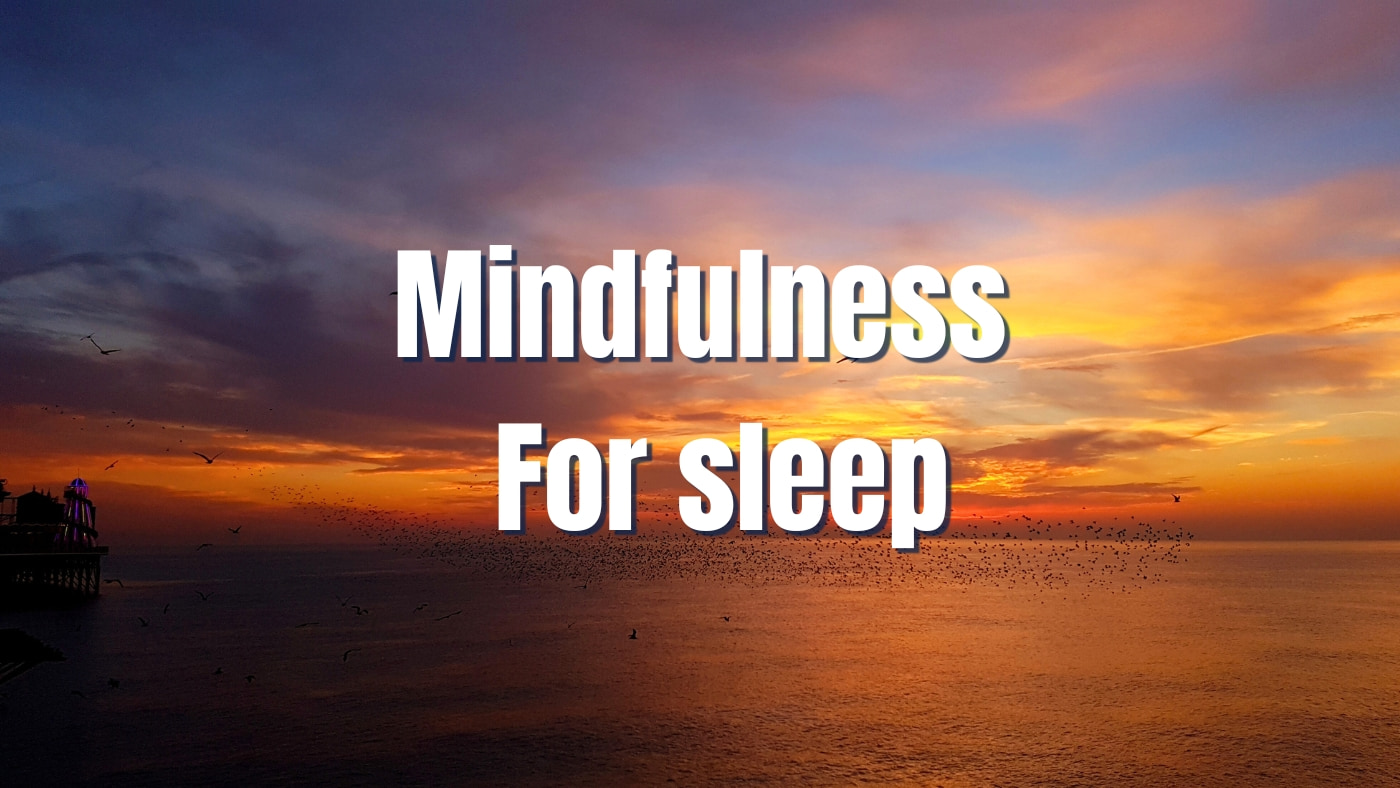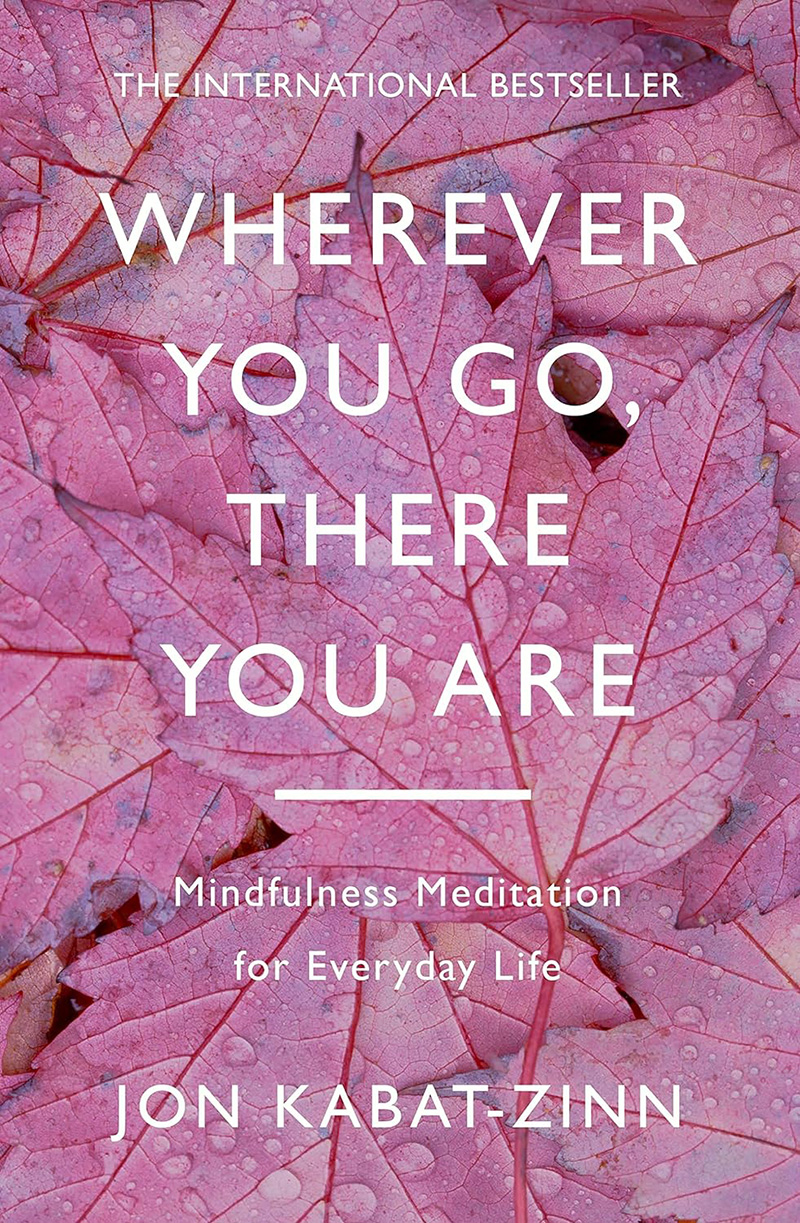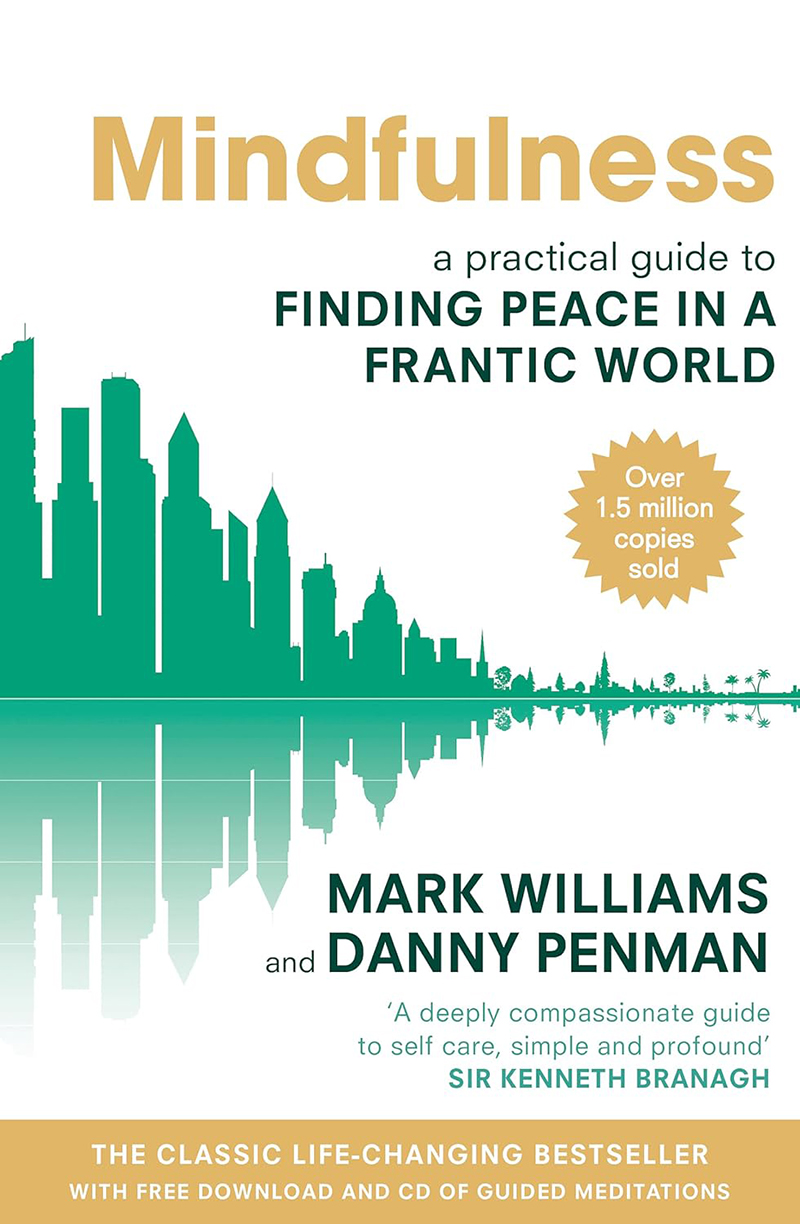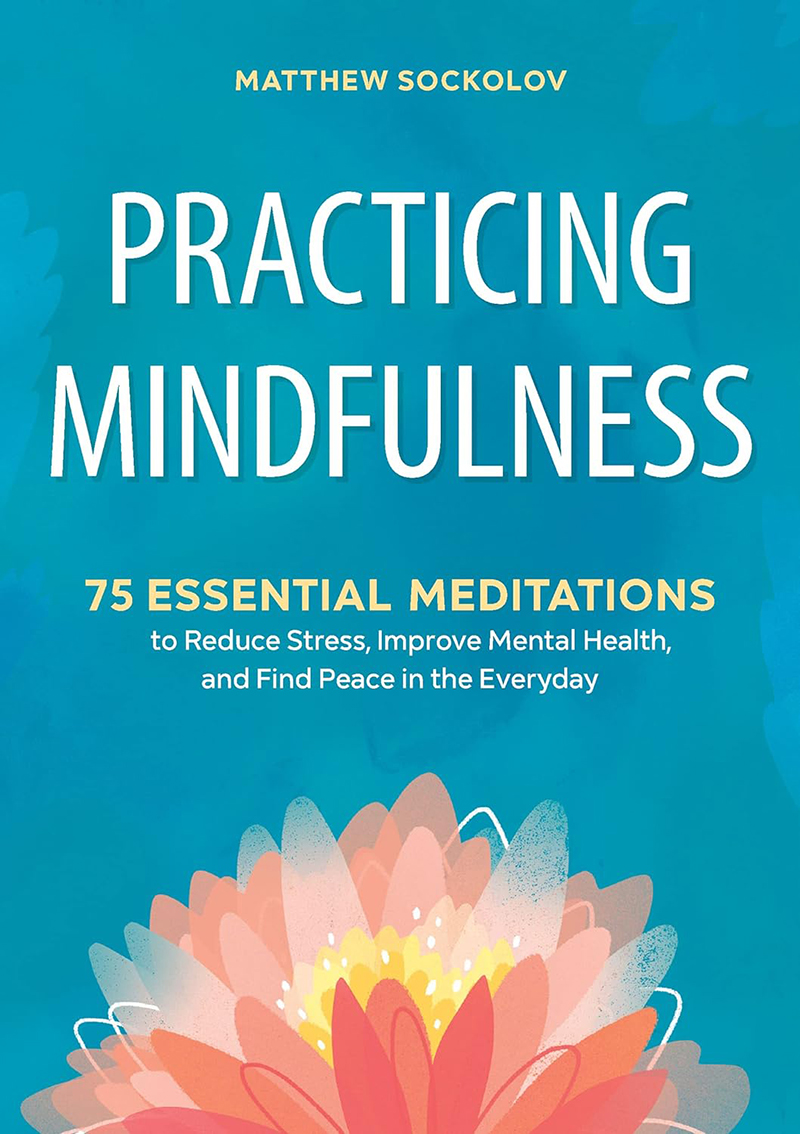
Do you sometimes lie awake at night worrying about important areas of your life, such as your relationships, finances, work, study, health, family or friends?
Maybe you even worry about not being able to sleep, and just thinking about sleep annoyingly ends up being another reason you can’t drift off.
If this sounds familiar, doing mindfulness exercises might help calm your mind, hopefully leading to a more relaxed state and a natural transition into sleep.
My personal
Even on particularly stressful days (which I still have), I can usually stop myself from lying awake for hours with a simple breathing exercise that helps calms my mind.
In this article, I’ll explain what mindfulness is and how it works. I’ll also give you some step-by-step instructions for techniques you can try right now. And then suggest where you can find out more, including some good free resources.
Contents
- What is mindfulness?
- The principles of mindfulness
- Two mindfulness exercises to try
- Research evidence
- Mindfulness resources: apps, books, courses
What is mindfulness?
The aim of mindfulness is to cultivate awareness of the present moment rather than ruminating or dwelling on concerns about the past or future. When your mind does wander, you learn to observe your thoughts and feelings without judgment, and let them pass.
The idea is that this practice and awareness can help calm a busy mind and potentially lead to a more relaxed state. And as you probably already know – it’s usually easier to fall asleep when the body and mind feel more relaxed.
In addition, research into mindfulness has also looked at what other benefits it might have, such as reducing stress, anxiety, and depression.
The key is to focus your attention on the present moment. Bring your mind into awareness of your thoughts, emotions, and physical sensations. You can then manage your worries better, rather than allowing them to spiral out of control.
For example, you might be lying awake worrying about financial problems. The idea is to become aware of the thoughts you’re having, but allow them to pass rather than getting increasingly stressed about your finances at two o’clock in the morning.
I know it might seem like a case of “easier said than done!” But there are some specific techniques to help you do this, which I’ll explain below.
The principles of mindfulness
The brain in ‘doing’ mode
The human brain is excellent at task-based problems. For example, when an engineer is solving a technical problem or a hairdresser is deciding how to shape someone’s hair.
This is sometimes called the ‘doing’ mode, in which the brain tries to work out the logical steps required to solve the problem. It’s also called ‘goal’ based, as you’re trying to achieve a specific outcome.
In the ‘doing’ mode, your brain continually searches your memories for previous experiences and knowledge, which it thinks might help you complete the current task. It does this without you consciously trying to recall past events. This ‘doing’ mode of the brain is very powerful and essential to everyday life.
When the ‘doing’ mode is unhelpful
A drawback of the ‘doing’ mode is when the brain tries to use it to deal with emotion-based problems. However, problems involving a lot of emotion usually can’t be fixed in the same way.
For example, if you’re worrying about tomorrow’s job interview, your brain will default to the ‘doing’ mode.
It might try to recall your past interviews or similar situations. It’s trying to help you solve the problem by presenting previous examples for you to consider.
But in this case, it can’t really solve the problem of ensuring your interview goes well. Presenting examples of unsuccessful, nerve-wracking interviews could even make you more worried.
This can then lead you to ask broader questions like, ‘Why can’t I do well in interviews?’ In turn, that can cause the worry train to pick up steam.
In other situations, this kind of ruminating may lead to questions like:
- Why am I always tired or unhappy?
- Why do my relationships always turn out badly?
These types of emotional issues just don’t lend themselves to an analytically based ‘doing’ approach.
Put your brain in the ‘being’ mode
Mindfulness takes a different approach by suggesting that there’s an alternative ‘being’ mode for your brain.
It teaches you how to develop this ‘being’ approach when faced with thoughts that worry you.
The first hurdle is to recognise that thoughts are only thoughts and that they aren’t always good predictors of the future. In essence, you have to learn to live in the present, not the past or future.
That might sound like a bit of a spiritual cliché to some people, but it’s one of the core principles of mindfulness.
So how do you live in the moment?
In the ‘being’ mode, you aim to take much more notice of your body and of your surroundings.
You might still have the same thoughts swirling around your mind. Rather than focusing on them, however, you learn to acknowledge them in a compassionate way. And importantly, recognise that they are just thoughts.
One approach is to try to see your thoughts as passing clouds – white ones for pleasant thoughts, grey ones for worrying thoughts.
You’re still aware of them and acknowledge them. It’s almost as if you’re an observer noting the thoughts, but not acting on them.

I took this photo in one of the places I like to visit to relax at the weekend. I often imagine myself walking here when I’m falling asleep.
You aren’t trying to stop these thoughts, and probably couldn’t even if you tried. You don’t need to get upset, disappointed, or even angry that you’re having them. The idea is to view them in a different way.
By doing so, you can prevent the downward spiral of increasing worry, anxiety, and stress keeping you awake at night.
It can take some time and patience to really feel the difference. Don’t let that stop you though: the rewards are worth the effort.
How to do mindfulness meditation
There are different approaches to using mindfulness to help you sleep, but there are two key components that are typically included:
- Acknowledge any thoughts buzzing around your brain in a compassionate, non-judgmental, or positive way.
- Gently shift into the ‘being’ mode, by doing breathing or meditation exercises.
Let’s take a look now at two relaxation/meditation techniques, both of which you can do before or whilst in bed. You can also do them in the morning or any time during the day you feel the need or have the time.
1. Breathing awareness exercise
- Lie on your back with your arms relaxed by your sides. Take a moment to get comfortable, knees up or down as you please.
- Bring your awareness to your breathing.
- There’s no right way to breathe. Just relax and breathe normally.
- Try to imagine the air is coming from far away, and you blow it out to a distant place.
- You might also say the words ‘in’ and ‘out’ in your mind to match your breathing. Or perhaps think of the word ‘relax’ with each exhale.
- Concentrate on your chest and/or abdomen rising and falling. Can you feel the movement as you breathe? Can you taste or smell the air when you breathe in? Is it cool or warm?
- Your mind will probably wander at some point, and thoughts may arise.
- Don’t worry if you have thoughts though. Acknowledge their presence without trying to judge them or yourself for existing, and then gently bring your focus back to your breathing.
- As you continue breathing, feel your body gently sink into your mattress little by little.
You can do this breathing exercise any time you feel the need to during the day. Just 5 minutes can help, but you might like to build up to 20 minutes eventually.
If you do it in bed, you can either do if it for a few minutes or until you feel too sleepy to continue. It’s entirely up to you how long you continue for.
2. Body scan relaxation exercise
The body scan technique helps by getting your mind to focus on different parts of your body instead of your thoughts.
There are different methods, and one that I’ve found effective is to imagine taking your mind on a journey around your body.
- Lie down and get yourself comfortable.
- Imagine your mind leaving your head, and travelling through your body to one of your feet.
- How does your foot feel? Is it relaxed, tense or sore? Is it hot or cold?
- Don’t make any judgments on how it feels – simply scan and observe how you feel.
- Imagine your toe and foot muscles tightening, and relaxing again.
- You can either imagine your muscles tensing and relaxing, or physically tense and relax them – do what feels best.
- Next, take your mind up to your calf, knee and thigh.
- Stop in each body part to repeat the scanning, muscle tensing and relaxing.
- Repeat the exercise with your other leg.
- Move to a hand and work your way up both arms.
- Scan, tense and relax your back, stomach, chest, shoulders and face.
- You may find that your limbs begin to feel heavier, perhaps with the feeling that you’re sinking deeper into your mattress.
- You might also find that your mind continues to get distracted and wander at times. Acknowledge any thoughts that arise in a positive way, and then bring your mind gently back to the exercise.
You might also like to listen to a Mental Health Foundation podcast episode narrated by Professor Colin Espie from the University of Oxford. With a calming voice, he talks you through a simple muscle relaxation exercise step by step over eleven minutes.
Evidence that mindfulness works
There’s increasing evidence for the benefits of mindfulness, as well as specifically for sleep problems.
Eight week trial
In 2014, researchers from U.S. Universities reported on an eight-week trial involving 54 adults with chronic insomnia.
People taking part underwent Mindfulness-based Stress Reduction, Mindfulness-based Therapy for Insomnia, or a self-monitoring regime.
The researchers found that both of the mindfulness programs were more effective than the self-monitoring routine. They concluded that:
Mindfulness meditation appears to be a viable treatment option for adults with chronic insomnia and could provide an alternative to traditional treatments for insomnia.
Study review
In 2016, a team of researchers reviewed all the studies of mindfulness and sleep done between 2012 and 2016. They came to a positive conclusion:
The studies reviewed found significant impacts of MBIs (Mindfulness Based Interventions) on insomnia and sleep disturbance, and these effects were especially strong in studies primarily aimed at improving sleep.
Harvard gazette article
An interesting article in the Harvard Gazette in 2018 discusses research into mindfulness at length. It’s a long read, but gives a good insight into the work of Gaëlle Desbordes, a neuroscientist who has shown through functional magnetic resonance imaging (brain scans) that meditation has a direct effect on the brain.
Review and meta-analysis
In 2019, a team of researchers undertook a review and meta-analysis of 18 randomised control trials into the effects of mindfulness on sleep. Some of their findings include:
The evidence suggests that mindfulness meditation can improve sleep quality in a variety of clinical populations with sleep disturbance. While our results indicated no effect of mindfulness meditation on sleep quality when compared with evidenced-based sleep treatments, the strength of evidence was low and further studies are needed to elucidate these findings. Results also indicated that mindfulness meditation significantly improved sleep quality compared with nonspecific active controls…At a 5- to 12-month follow-up, mindfulness meditation did not differ in effect from evidence-based sleep treatments and significantly improved sleep quality compared with nonspecific active controls. These findings provide preliminary evidence for a long-term effect.
Interestingly, they also caution that the first few weeks of practicing mindfulness can be challenging for some people. This can either be in the form of symptoms worsening initially, or feelings of anger, sadness, or fear appearing stronger.
They say that “a history of trauma, mental instability, addiction, or major life changes may heighten emotional reactivity and require additional clinical monitoring.”
So if this is something that concerns you, perhaps consider having guidance or support around your practise rather than doing it alone.
Mindfulness resources
This article is only meant as an introduction to mindfulness. If you’d like to learn more, there are different options to suit your budget and learning style.
I have no relationship with any of the companies below and none of the links are paid or sponsored links. I’ve included them purely for reference.
A) Apps
There are numerous meditation and mindfulness apps. Some have a free introduction series of sessions, but may ask you to subscribe for a monthly fee to continue.
Here are some that I’ve tried and liked:
– Calm
- Huge range of meditations, sleep stories and ambient sounds.
- 7 day series on sleep that provides a good grounding in mindfulness.
- Account needed. There is some free content, but the majority is available with a premium subscription.
– Headspace
- Over 500 guided meditations of different lengths and styles.
- Account needed. There is a 14 day free trial, after which you need a subscription to access any of the content.
– Let’s Meditate
- 100% free.
- Wide range of meditations, including sleep and mindful walking.
– Medito
- 100% free.
- Good range of mindful meditations.
- SOS meditations for stronger emotions.
B) Books
Like the Apps, there are many self-help books that teach you mindfulness. Here are a few to consider:
– Wherever You Go, There You Are: Mindfulness Meditation in Everyday Life (Jon Kabat-Zinn)

- One of the seminal books on mindfulness.
- Very comprehensive explantation of all aspects of mindfulness.
- Practical exercises as you go through the book.
– Mindfulness: a practical guide to Finding Peace in a Frantic World (Mark Williams and Danny Penman)

- Structured approach to learning mindfulness.
- Explains the principles clearly.
- Simple exercises you can use during the day or night.
- Accompanying guided meditations to download.
– Practicing Mindfulness: 75 Essential Meditations to Reduce Stress, Improve Mental Health, and Find Peace in the Everyday (Matthew Sockolov)

- As the title suggests, contains a wide range of meditations.
- Gentle learning curve.
- Shorter meditations to get started.
C) Online courses
There are a number of organisations that offer online courses. Many of them are based on general mindfulness principles and not just about sleep. Most charge for their courses.
If you’re interested, here are a few organisations offering online or in-person courses in Mindfulness-Based Stress Reduction (MBSR). There are more options if you search online, but these give you an idea of what kind of course and price range to expect:
- Be Mindful – In partnership with the UK Mental Health Foundation.
- MBSR online – UMass Memorial Health.
- Palouse mindfulness – A free online course.
- MBSR program – UC San Diego Centers for Integrative Health.
- UCLA Mindful – UCLA Health
D) Therapy courses
If you or your doctor feel you would benefit from undertaking a dedicated therapy course, you might be able to find an organisation offering a mindfulness therapy program. It may be quite expensive, so you need to be sure that it’s right for you.
If you have serious and ongoing sleep problems, ask your doctor if you can get help through your health insurance or national health service, depending on your country.
The therapy approach to sleep problems, rather than sleeping pills, is gaining increasing credibility with medical professionals. In May 2016, the American College of Physicians issued guidance about the use of cognitive behavioural therapy for the treatment of insomnia.
Based on reviewing relevant reports and research from the last 11 years, they recommended that:
All adult patients receive cognitive behavioral therapy for insomnia as the initial treatment for chronic insomnia disorder.
E) Group courses
Such is the growing popularity of mindfulness, that in many major cities and towns you can often find group courses. I know people who’ve attended an eight week course in London, San Francisco, Madrid and Sevilla, for example.
As well as helping them deal with stress or sleep problems, they all reported enjoying the courses and making new friends along the way. So it might be worth checking online if your local area has a mindfulness group workshop or course you can attend.
To give you one example, Breathworks in London offers eight week group mindfulness courses.
F) Short online guided mindfulness meditations and exercises
As the popularity of mindfulness grows, so does the number of websites that have free guided meditations. This is a good stepping stone if you want to learn more and try some exercises, but perhaps don’t want to embark on an entire course yet.
If you search on Youtube, Spotify, or Soundcloud, you’ll find many different meditations. One source that I personally like is the Harvard University Wellness website, where they have several guided meditations that are short and well made.
Taking a holistic approach
Mindfulness may be most effective if used as part of a wider attempt to improve your sleep. So it’s also important to take positive steps, such as ensuring your daily choices and activities, as well as your bedroom setup, are conducive to good sleep. Take a look at my sleep hygiene tips article for more on that.
Finally, mindfulness isn’t meant as a catch-all self-help treatment for every possible sleep problem. If you’re concerned about your sleep, talking it through with your doctor is always an option to consider.
Your views
I’d love to hear your thoughts about mindfulness. Have you tried it before, or do you think it’s something you’d be willing to try?
Feel free to share your thoughts and experience in the comments below.





This article is usefully for others. I am doing this mindfulness meditation and I get focusing on your present through mindfulness. It’s very helpful for me because this helps to get stress out my mind and getting goals. The benefits of mindfulness meditation are that it brings your awareness to your breathing, it helps me to breathe.
Hi
Thanks for your comment, and glad both the article and mindfulness practice are positive for you.
Regards
Ethan
Hi Ethan!
As a 32 year old, I have kids who are in second, fifth, and seventh grade. They often come home asking for help with homework or projects. It stresses me out. I’m willing to help them, but not if they won’t participate. It can end up taking hours just to help one of them. Most nights we end up having microwaveable dinners while there’s perfectly good, fresh food in the fridge no one had time to cook. I first got into mindfulness when my oldest daughter entered fifth grade. That was when grades, looks, and friends suddenly became important. I, at first, was simply looking for an easy way to fall asleep at night. Then my husband found your website. “Lucy!” he yelled, “comere!” As I was helping Lanie, middle child, with her work, I yelled back, “After dinner!” So, finally, it’s the time of day where everyone is settled. I don’t bother putting the oldest to bed. I know she’ll get right back on her phone anyways. As for Lanie and Margo (youngest), I kiss them good-night and tuck them in. I stumble back downstairs and change into my P.J.s “Aah!” I exclaim, settling into bed. “now, what did you need me for earlier, honey?” My husband says, “Oh, I just found a website you might like.” I read it. It was this website. Then I got into mindfulness. And soon enough, my stressful, busy mornings full of “hurry ups” and “come eat your cereals” and “come on we’re gonna be lates” became slightly less stressful. Over time, I saw a drastic change. I went from a frizzy-haired, baggy-eyed, always-tired 32 Y.O. to a clean, neat, well-kept, well-rested 33 Y.O. I am exceptionally happy with my life and my kids. They all learned their lesson about responsibility, helpfulness and dependability. And really, I have you to thank for it.
Best wishes.
Hi Lucy,
As a blogger, I think the best gift I’ll receive this holiday will be your comment!
I’m sure at some point you would have found another catalyst for getting into some form of stress-reduction techniques.
Once again, thank you for taking the time to leave this comment and make my December. I hope the new well-rested you is a permanent and happy change.
Best wishes
Ethan
I just came across your web site and appreciate all the comments and replies you have made. I am 96 years old and in reasonable good health, but have had trouble going to sleep ever since I had lengthy radiation treatment for prostate cancer which produced nocturnal incontinence. I need to go to the bathroom several times each night which means I need to go back to sleep again. I have tried mindfulness focusing on my breath for a number of months and found it helps, but have trouble concentrating enough to get back to sleep. Do I keep practicing during the day on excluding extraneous thoughts to get to better focus? My mind always drifts to other tasks that I want to do. Should I add progressive muscular relaxation? I had tried it before and had trouble following through with it . I appreciate your time in helping people sleep better.
Hi Cecil
Thank you for your comment and kind words. Sorry to hear about your cancer diagnosis. I also had cancer 7 years ago – it’s a tough journey.
It’s great that you’ve found mindfulness – it was also around about the time I was ill that I also first really got into it.
I think it’s good to practice it either when you feel the need, or as a regular activity – there’s no rule really. Whatever works best for you!
In terms of waking in the night, I think it’s important not to stress about it. Waking up and then feeling anxious that you can’t go back to sleep is in itself likely to keep you awake. So if you can try not to worry about it, just relax in bed and wait for sleep to come again, that’s a good thing.
If you have trouble with incontinence, that’s something to ask your doctor about.
Regards
Ethan
Hi,
I have awful sleep anxiety, worry about not sleeping, self fulfilling prophecy.
I’m so relieved to know I’m not alone, most blogs are years old so no use really.
I’d love to ‘buddy’ up for support and advice.
Thank you Ethan for this site, it’s a blessing.
Hi Karen
Thanks for your comment, and I’m happy to hear you like the site. Yes, anxiety and worry about sleeping can be so stressful – a self-fulfilling prophecy is a good way to describe the vicious circle that can occur.
You’re definitely not alone in this – I used to have the same problem, though thankfully it’s much better now.
I’m not sure how to help with the buddying up idea though. It’s not something we really offer here. But you’re welcome to keep writing here, and I’ll keep replying:-)
Regards
Ethan
Hi there! First of all, I’d like to say thank you to Ethan for this article (and website). I’ve been struggling with insomnia for the last month, and no OTC/prescription remedies are helping. I think what bothers me the most is I know exactly what is triggering my sleeplessness – work and anxiety. About a month ago, I found out my boss was leaving and will not be replaced. So a lot is falling on me now. It’s been exhausting and my anxiety has been through the roof. So the onset of insomnia with everything else going on is killing me. I’m really hopeful that mindfulness exercises will help me to regain some of this control that I feel like I’ve lost. I’ve always had occasional bouts of insomnia, but nothing this extreme. Thanks for giving me hope!
Hi Shannon,
Thanks for your comment. I’m happy to hear you found the article and site useful. Sorry to hear you’re under so much stress at the moment with your boss leaving and the extra work. I can totally understand how that would affect your sleep.
I think this is the kind of situation that mindfulness might help with. As well as trying the basic exercises in the article, if you find them useful, I recommend exploring it in more depth if you like the sound of it.
Regards
Ethan
I had chronic insomnia for a year, came off amitriptyline as had degenerative disc disease, the pain is ok now but sleep just won’t come – tried all kinds.
Hi Clare
Thanks for your comment. I hope some mindfulness techniques prove useful for you!
Regards
Ethan
Hi Ethan,
Let’s say the sleeplessness and the worry about sleepless nights has been on and off for about a month now; if I continue to focus on mindful techniques at night, non-judgement, loving kindness, positive reframing, etc.; and still haven’t gotten back to “normal,” is it just a matter of time…or am I doing something wrong?
KT
Hi KT
Thanks for your comment. As you’ll know from mindfulness, it’s not about doing something right or wrong. However, if it’s not helping you stop being anxious about sleep or sleep better, then I can see why you’d question it. The thing is, even though mindfulness can be useful, it’s not a guaranteed ‘cure’ for everyone’s sleep problems. If you decide to continue, it might also be prudent to explore other reasons that you might be sleeping badly.
Regards
Ethan
Hello sir, my name is James and I’ve been surfing from anxiety for a couple months now. I just had a question. You say to allow thoughts to come in and not judge them and to look at them with compassion, but what if the thoughts bring fear, like a thought about not being able to feel like my old self again? Or how would I use mindfulness for sleep if sleep is something I dread or fear? Thank you.
Hi James
Thanks for your comment. It doesn’t matter if the thought is positive or negative. The idea is not to allow yourself to feel bad that you’re having thoughts at all. Many people think meditation should be about having a totally empty mind. But actually, it’s normal in this kind of practice to have thoughts. The idea is to not get stuck on that thought by worrying about it. So just allow it to drift in and out of your mind, even if it’s a potentially scary thought.
As for the sleep question, why is it that you fear sleep? And you can still do the same thing – even if you start having thoughts about being scared to go to sleep, try not to dwell on them or get upset that you’re having them. Allow them to come if they do, and gently let them go again.
Regards
Ethan
Hi James, I suffer a very similar fear , I’ve been advised to focus on feeling safe acknowledge that you are at home, in your room in your bed, you are warm, comfortable etc etc it can help nudge the fear away a little, don’t worry about being your old self, I know what you mean but be your best (or worst!) new self and be kind to you, best wishes and sweet dreams to you!
I’ve used the breathing technique for some weeks now to help with sleep. At 71 my bladder is more urgent than it used to be, but, since using the technique, I can now sleep through the night without having to get up to the toilet. I do “surface” from sleep at intervals, but by returning to the breath, I go back to sleep again.
Hi Derry
Thanks for your comment. It’s good to hear that the breathing technique has helped.
Regards
Ethan
I suffer from depression and sometimes, when it’s bad, I lie awake and can’t sleep for hours…I’m not even worrying, I’m just staring into space…It’s exhausting.
Hi Rosa,
Thanks for your comment. Sorry to hear you suffer from depression and that it affects your sleep in such a way.
Regards
Ethan
It is harder right now. I’m a classic example of being unemployed and that creates a lot of stress. To counter the stress, I’m taking time to do things that alleviate the stress. Long walks with the dog help. So did the rainbow a couple of nights ago. (I took it as a sign of hope). I’ve got more time to spend with my family. These things aren’t eliminating the situation we’re in, but they help create a balance.
Hi Popova
Thanks for your comment, and sorry to hear things are difficult right now for you and your family. It’s great that you have recognised that you’re under a lot of stress, and that you’re trying to do something about it. Going for long walks helps me too I find. In fact, I sometimes listen to mindfulness meditation tracks with headphones when I’m walking. They help me to stop ruminating about problems, but instead focus on the things I’m seeing, smelling, feeling etc on the walk.
I hope things improve for you soon and that the hope the rainbow brought you transforms into good things.
Regards
Ethan
I have found your website very useful. I am about to begin seeing a therapist regarding my tinnitus and she has mentioned the use of mindfulness in her sessions.
I am currently very impressed with Kalms and have started to use their day pills for anxiety, but early days!
Just one note on Kirkland Sleep aid. Wow, they really knock you out but I must admit I felt terrible the next day, low mood and physically unable to do anything,so won’t be using them again.
Ian
Hi Ian,
Thank you for your comment. I’m very pleased you found the website useful – thank your for saying so.
It’s also good to hear from someone who is thinking of trying mindfulness. I also have tinnitus, and as you know, it’s often worse at night when you’re in a silent room and you become aware of it. I think mindfulness might be helpful for both taking your attention away from it, and also not worrying about the fact that it’s there.
Thanks for the notes about the sleep aids.
All the best
Ethan